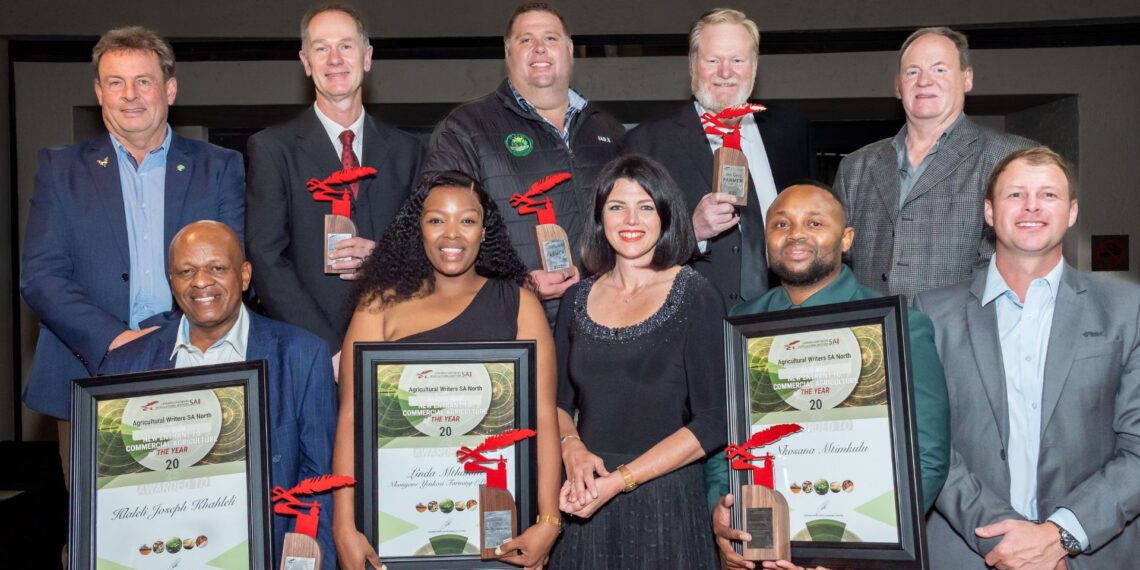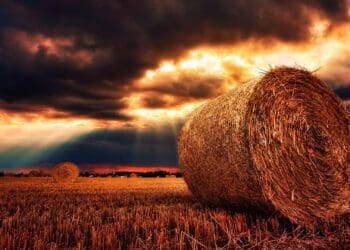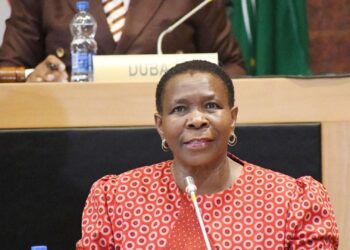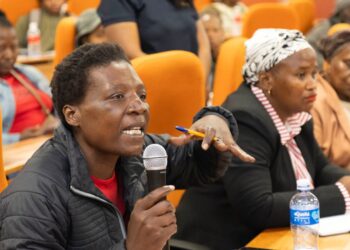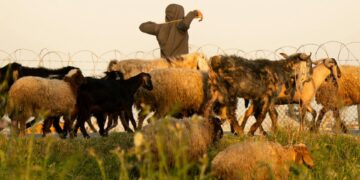South Africa’s farmers and agriculturalists are the backbone of the nation’s food security and rural economy, standing tall among the best in the world. In a sector where resilience, innovation, and grit are tested daily, it is vital to recognise and honour those who keep our plates full and our agricultural industry globally competitive.
Agricultural Writers SA North announced its regional candidates recently during an awards evening held in Pretoria. Members nominated candidates in three categories: Farmer of the Year, Agriculturist of the Year, and New Entrant to Commercial Agriculture.
Honouring the best
These provincial finalists, together with those from the !Xhariep region (Western, Eastern, and Northern Cape) will be adjudicated by an independent panel of judges. The national Agricultural Writers South Africa (AWSA) Awards will be presented on 14 November in the Western Cape, where the national winners in each category will be announced.
Related stories
- !Xhariep AWSA honours top farmers and agriculturalists
- Women gain ground in agri careers, but pay gaps remain
- FMD: SA’s meat future hinges on biosecurity overhaul
- Wieta pushes for black wine brand transformation
Lindi Botha, chairperson of Agricultural Writers SA North, emphasised the importance of recognising the people behind the nation’s food systems.
“Farming is the heartbeat of this country. Without our farmers and agriculturalists, there is no food on our tables, no thriving rural communities, and no economy to speak of. Yet too often their efforts go unseen. These awards are about shining a light on the men and women who work tirelessly, often against incredible odds, to feed a nation and keep South Africa competitive on the world stage,” she said.
Celebrating resilience, family and community
Leonard Oberholzer, managing director of Rijk Zwaan, highlighted the common thread among all award recipients.
“The common thread that connected all the award recipients was their remarkable resilience and determination, grounded in community and family. Each of them has not only invested in their own growth but has also given back to uplift those around them,” he said.
Meanwhile, Jaco du Preez, marketing manager for New Holland Agriculture, reaffirmed the company’s commitment to supporting the Agricultural Writers SA. “As a leading provider of agricultural mechanisation, we believe that strong, reliable communication forms the backbone of a progressive agricultural sector.
“Our support for the association is based on a shared vision: to empower farmers, agricultural specialists, and the broader public with accurate, relevant, and inspiring information. Agricultural Writers SA plays a key role in disseminating knowledge about technology, sustainable practices, and the stories of the people who feed our nation. We believe that a well-informed agricultural sector can build a stronger, more sustainable future,” Du Preez said.
The New Entrant to Commercial Agriculture finalists are:
Free State – Joseph Khahleli
Khahleli manages a 343-hectare mixed operation on Zandfontein, producing maize, sunflower, sugar beans, and Bonsmara cattle. His precision, record-keeping, and technical excellence earned him the title of AGT Foods Africa Emerging Dry Bean Producer of the Year. As a member of Grain SA’s 250 Ton Club, he represents the next generation of progressive, sustainable farmers.
KwaZulu-Natal – Linda Mthalane
A former hospitality professional turned farmer, Mthalane transitioned from city life to agriculture five years ago. Today, she manages Nkonyane Yenkosi Farming (Pty) Ltd, specialising in Simbra and Brahman cattle. Her business, based in Dundee, has grown from eight to nearly 200 breeding cattle, with her brand now trusted among buyers for its consistent quality.
North West – Nkosana Mthimkhulu
After leaving a corporate career in 2010, Mthimkhulu built a dairy and processing enterprise before refocusing on grain production in 2022. His 533-hectare farm now supplies high-value crops like non-GMO popcorn, maize, and wheat to Tiger Brands and PepsiCo’s Kgodiso Development Fund. His story of resilience and reinvention stands as a model of modern agricultural entrepreneurship and community leadership.
READ NEXT: Limpopo’s ‘soil boy’ finds calling in crops, cattle, and community



